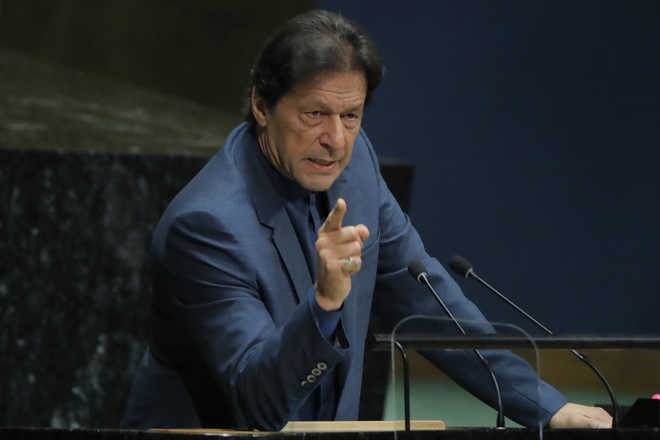
The National Security Policy of Pakistan (NSP) released by the government of Prime Minister Imran Khan is simply ‘old wine in a new bottle.’ The 62-page document reads more like an attempt to apply glossy paint on recycled paper. There is nothing new in the document, nothing that hasn’t been said in previous national security policy documents, and nothing that hasn’t been said by almost every prime minister and military leadership for the last few decades.
The policy claims to articulate a ‘citizen centric’ framework and talk about ‘traditional’ and ‘nontraditional’ security but its perception of threats Pakistan faces remain the same: ethno-linguistic nationalism and India.
Despite Prime Minister Khan’s public statements that his government wants better relations with Pakistan’s neighbors, the policy document only reiterates old statements. In 2021, COAS General Bajwa spoke of peace and moving forward with India, but this policy document simply rehashes predictable statements on India as ‘hegemonic’ and aggressive.
The policy document also puts forth the perspective of the Pakistani deep state of viewing ethno-linguistic nationalism as ‘violent subnationalisms’ instead of admitting and acknowledging the reality of Pakistan: instead of seeking to impose an ‘Islamic welfare state’ admit that we are an ethnically and linguistically diverse society. At the end of the day, Pakistan cannot be a stable polity if the state doesn’t accept the rich and diverse ethno linguistic religious identity
The policy document speaks about the need to ‘Project Pakistan’s Positive Reality’ without acknowledging that you cannot change image without changing reality. The document claims that Pakistan has fought terrorism for two decades and that the country faces “hostile actors” who are seeking “to disrupt and delay development initiatives.” It is true that more Pakistanis have died from terrorism than citizens of many other countries. What is equally true and is ignore in this document is the decades long support for terrorist groups by the Pakistani security establishment. You cannot speak of fighting terrorism without acting against all groups that you have supported all these years.
The policy document emphasizes geo-economics and claims it will achieve “economic security and sovereignty through sustainable growth, inclusive development, and financial solvency.” However, the policy solutions offered include income disparity, making Pakistan more appealing for regional connectivity and trade, resolving the circular debt issue (re energy security), and fiscal management (especially tax reforms). All of these have been promised for decades by every successive government but nothing has changed. You can talk all you want about geo-economics, but nothing will happen unless and until you address structural issues.
Finally, the policy document leaves out the one key issue: none of the changes and policy guidelines laid out can without the military and intelligence establishment backing off and allowing Pakistan to become a normal functioning state.
![]()





